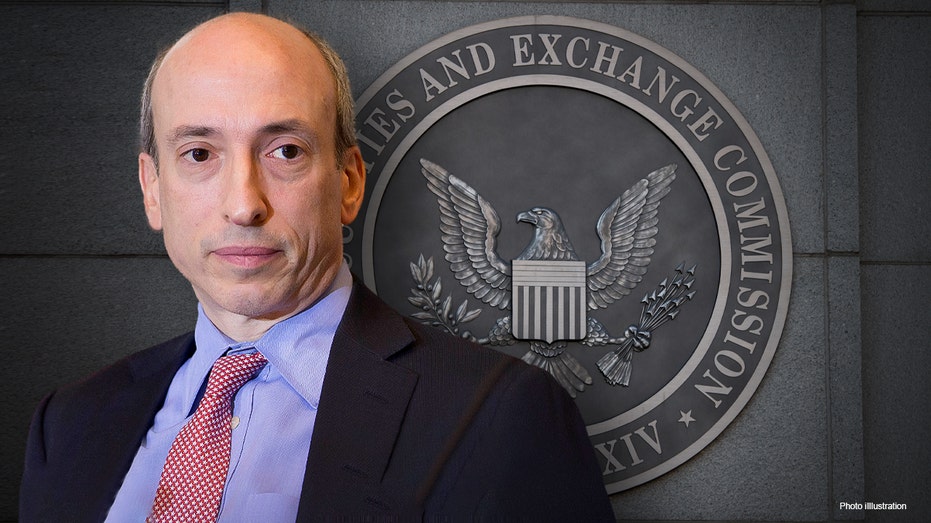‘Coin Stories’ podcast host Natalie Brunell discusses whether Bitcoin could drop below $20K in 2024 on ‘The Big Money Show.’
A little more than a month after Securities and Exchange Commission Chairman Gary Gensler cast the deciding vote that led to the agency’s historic approval of 11 spot bitcoin exchange-traded funds, the crypto industry is now anticipating a similar outcome for a spot ether ETF as early as May.
Sentiment surrounding the approval of a spot product (a fund that tracks the daily, or “spot” price of an asset) for the world’s second-largest digital asset in 2024 is overwhelmingly positive, according to a series of interviews conducted by FOX Business. The view is shared not just in the crypto industry, but among some securities lawyers and traditional Wall Street players as well.
That said, skeptics are also making their voices heard. Some point to Gensler’s past ambivalence about the legality of ether – that it might be an unregistered digital coin and thus unsuitable for an ETF. Another concern: Ether has less broad base or institutional support in the financial industry than bitcoin, which is the first and most valuable digital asset.
COURT DECISIONS COULD REIN IN SEC AUTHORITY OVER CRYPTO INDUSTRY
Those concerns aside, several securities lawyers told FOX Business that the legal precedent set during the approval process of the spot bitcoin ETFs has created a blueprint that will likely be followed in the case of their ethereum counterparts.
“The SEC will be hard-pressed to come up with a new argument for denying a spot ether ETF when the same factors in the spot bitcoin ETF approval are also at play here,” said Marc Powers, a blockchain professor at the Florida International University College of Law and former SEC enforcement attorney. “I don’t think Chair Gensler is going to have much of a choice.”

Gary Gensler, chairman of the Securities and Exchange Commission (Andrew Harrer/Bloomberg / Getty Images)
The Jan. 10 approval of nearly a dozen spot bitcoin ETFs – an unprecedented event given the number of issuers launching nearly identical products and the nascent nature of digital assets – came about as a result of crypto asset manager Grayscale winning a court appeal against the SEC in August.
A panel of judges from the D.C. Court of Appeals sided with Grayscale in a decision that concluded the SEC acted “arbitrarily and capriciously” when it outright denied Grayscale’s application to convert its 10-year-old Bitcoin Trust into a spot ETF.
SEC’S X ACCOUNT HACK REHASHES CONCERNS OVER AGENCY’S DATA SECURITY
The court took issue with the commission’s assertion that a spot ETF was materially different and inherently riskier for retail investors than the futures ETF, which the SEC approved in 2021.
Grayscale’s victory was seen as a watershed moment for the crypto industry and a signal for other issuers to bring their own spot bitcoin products to market. Just weeks after the ruling, the SEC began engaging with Grayscale and other issuers, including Wall Street giants BlackRock and Fidelity, on how to offer bitcoin in the traditional ETF wrapper.
In a statement following the commission’s approval, Gensler acknowledged that Grayscale’s legal victory was pivotal in greenlighting the spot bitcoin ETFs, saying “the Commission acts within the law and how the courts interpret the law.”
SEC commissioner Hester Peirce, who has been largely pro-crypto and voted to approve the spot bitcoin ETFs, has said publicly since January that the commission should not require a court to make it approve a product that people want to invest in.

Hester Peirce, commissioner of the U.S. Securities and Exchange Commission, during the Permissionless II event in Austin, Texas, on Sept. 11, 2023. (Thomas Allison/Bloomberg via / Getty Images)
Another reason for believing the SEC will look favorably on an ether spot ETF this year is the growing demand from big Wall Street firms.
More than half a dozen companies including BlackRock and Fidelity, which together boast a combined $13.5 trillion assets under management, have applied to launch an ether spot ETF. On Monday, Franklin Templeton, with $1.4 trillion assets under management, became the eighth firm to file an application with the SEC for a spot ether ETF.
“Ethereum is a different product to bitcoin with its own unique aspects,” said Andrew Keys, co-founder of DARMA Capital, which oversees an Ether investment fund. “Many Wall Street firms and fintech companies building their applications on the ethereum blockchain see long-term value in commercializing it.”
The current price of ethereum as of Thursday morning is $2,837 per coin compared to bitcoin’s $52,301 value. Together, the two represent more than half of the nearly $2 trillion that makes up the global cryptocurrency market.
Both Keys and Powers also cite the existence of an ethereum futures market as yet another reason the SEC may find it difficult to deny the spot ether ETF.
“A fundamental part of the regulatory process is making sure a marketplace in which investors operate is not subject to manipulation,” said Powers. “The SEC cited the CME bitcoin futures market as providing an adequate surveillance tool against manipulation in the spot market, which ended up being a key factor in approving the spot bitcoin ETFs.”
The CME launched bitcoin futures in 2017 and ethereum futures in 2021.

Ethereum faces withdrawal shortcomings, exposing potential weaknesses. (iStock / iStock)
“Having a surveillance tool already in place for an ethereum spot ETF and given the SEC’s approval of ethereum futures ETFs in October, in theory, the blueprint for a spot ether ETF is there,” Keys added.
There are also those who believe an SEC approval of a spot ether ETF in 2024 is ambitious.
Some say Gensler’s refusal to say whether he thinks ether is a security or not is a red flag. While the SEC chair’s statements on the topic have varied since his time as chairman of the Commodity Futures Trading Commission between 2009 and 2014, and a blockchain technology professor at MIT in 2018, he’s been careful not to publicly vocalize his thoughts on the matter since joining the SEC in April 2021.
Ethereum’s blockchain upgrade to a so-called “proof of stake” mechanism in 2022 has left many in the industry wondering whether the new structure could affect the status of the ethereum token in the eyes of the SEC chairman. Proof-of-stake protocols require traders to stake some of their cryptocurrency as collateral when they add new transactions to the blockchain. This is different from the “proof-of-work” mechanism that bitcoin relies on, which requires users to “mine” for tokens by solving cryptic computational puzzles.
GET FOX BUSINESS ON THE GO BY CLICKING HERE
After ethereum’s upgrade to proof-of-stake, Gensler suggested that proof-of-stake tokens could constitute investment contracts that are subject to securities laws.
Investment bank TD Cowan believes the SEC will approve a spot ether ETF eventually, but not until after the November election. Cowan analysts believe Gensler’s political aspirations, including becoming U.S. Treasury secretary, will incentivize him to keep progressive Democrats like Massachusetts Sen. Elizabeth Warren, who fiercely oppose the SEC’s approval of the spot bitcoin ETFs, on his side.
The SEC declined to comment specifically but pointed FOX Business to its website for any filing updates.



